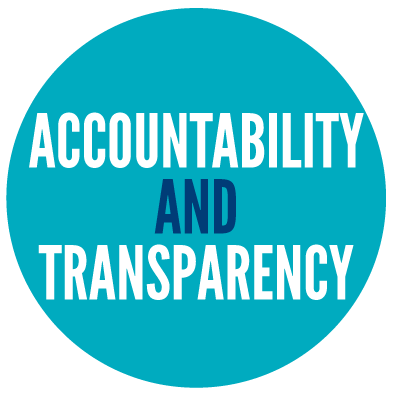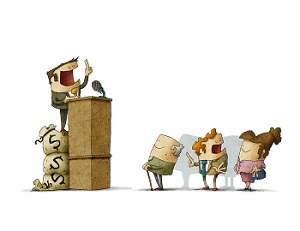Political Polarization Impact on Governance
Explore the consequences of political polarization on democratic governance and social cohesion. Discover how political divisions affect our society.

The Impact of Political Polarization on Democratic Governance and Social Cohesion
Political polarization has become an ever-present phenomenon in contemporary democracies around the world. It refers to the growing divide between individuals and groups with differing political ideologies, values, and beliefs. While some level of ideological diversity is inherent to any democratic society, the extreme and escalating nature of political polarization has profound implications for democratic governance and social cohesion. This article aims to analyze the impact of political polarization on these critical aspects of modern societies.
Erosion of Democratic Governance
Gridlock and Inefficiency: One of the immediate consequences of political polarization is gridlock within legislative bodies. When politicians are deeply divided along ideological lines, it becomes increasingly challenging to pass legislation and make decisions that benefit the entire population. This gridlock can lead to inaction on pressing issues such as healthcare, climate change, and economic reform.
Undermining Trust in Institutions: Political polarization often results in a loss of trust in democratic institutions. When citizens perceive their elected representatives as more interested in pursuing ideological agendas than in serving the common good, faith in the political system erodes. This can manifest in lower voter turnout, decreased civic engagement, and even protests or civil unrest.
Policy Instability: Rapid shifts in political power due to polarization can lead to policy instability. Policies that were once implemented may be reversed entirely when power changes hands, creating uncertainty for businesses, individuals, and long-term planning.
Social Cohesion at Risk
Us vs. Them Mentality: Political polarization fosters an "us vs. them" mentality where individuals view those with opposing views as enemies rather than fellow citizens with different perspectives. This can lead to social fragmentation and animosity, inhibiting constructive dialogue and cooperation.
Echo Chambers and Confirmation Bias: The digital age has amplified polarization through social media and online echo chambers. People tend to surround themselves with like-minded individuals, reinforcing their own beliefs and exacerbating divisions. This echo-chamber effect limits exposure to diverse viewpoints and hinders empathy.
Divisions Along Identity Lines: Political polarization can intersect with other forms of identity-based divisions, such as race, religion, and socioeconomic status. When these divisions align with political affiliations, they intensify existing societal tensions and hinder efforts to bridge gaps and foster inclusivity.
The Role of Media
Media Polarization: Media outlets often contribute to political polarization by catering to specific ideological audiences. This can lead to biased reporting and the spread of misinformation, further deepening divides among the population.
Filter Bubbles: Algorithms on social media and news websites create filter bubbles, showing users content that aligns with their existing beliefs. This reinforcement of existing views exacerbates polarization and limits exposure to differing perspectives.
Potential Solutions
Civic Education: Promoting civic education that emphasizes critical thinking, media literacy, and respectful discourse can help individuals navigate the information landscape and engage in constructive dialogue.
Electoral Reform: Changes to electoral systems, such as ranked-choice voting or proportional representation, can incentivize politicians to reach across the aisle and reduce polarization.
Media Responsibility: Encouraging responsible journalism and media practices, including fact-checking and diverse representation, can mitigate media-driven polarization.
Leadership and Bipartisanship: Political leaders have a role to play in setting a tone of cooperation and bipartisanship. Encouraging civil discourse and compromise can set an example for the population.
Public Perception and Polarization
Psychological Impact: Prolonged exposure to political polarization can have profound psychological effects on individuals. The constant stress and anxiety associated with intense political divisions can lead to negative health outcomes, including increased levels of depression and a reduced sense of well-being.
Loss of Compromise: As polarization deepens, the willingness to compromise diminishes. People become more entrenched in their beliefs, viewing compromise as a betrayal of their principles. This lack of compromise impedes progress and constructive problem-solving.
Global Perspective
International Relations: Political polarization within a nation can also have ramifications on the global stage. A divided nation may struggle to present a unified front in international negotiations and diplomacy, potentially weakening its influence and ability to address global challenges.
Influence of Polarized Nations: Polarized nations may export their divisions through international media and social platforms, contributing to global polarization trends. This can complicate international cooperation on issues like climate change, trade, and security.
Historical Lessons
Lessons from History: History has shown that extreme political polarization can lead to societal breakdown and even violence. It's crucial to remember the lessons of the past and work to prevent the worst consequences of polarization.
Examples of Reconciliation: Some nations have successfully overcome deep divisions through reconciliation processes, truth and reconciliation commissions, and national dialogues. These examples offer hope that with concerted effort, even deeply polarized societies can find common ground.
The Importance of Civil Society
Civil Society Organizations: Civil society organizations, including community groups, non-profits, and religious institutions, can play a vital role in bridging divides. They often have the trust of their communities and can facilitate dialogues that foster understanding and cooperation.
Local Initiatives: Grassroots initiatives that encourage citizens to engage with one another, regardless of their political beliefs, can help counteract the divisive forces of polarization. These initiatives can build bridges and promote a sense of shared identity.
The Long Road to Recovery
Realistic Expectations: It's important to recognize that addressing political polarization is a long-term endeavor. There are no quick fixes, and progress may be slow. Patience and persistence are key.
National Healing: Healing a polarized society requires a commitment to national unity and the belief that, despite differences, citizens share common values and aspirations. It also necessitates open and empathetic conversations that humanize those with opposing views.
The impact of political polarization on democratic governance and social cohesion cannot be overstated. It poses a multifaceted challenge that affects every aspect of society, from the functioning of political institutions to the well-being of individuals. To address this challenge, it's essential for individuals, communities, and nations to take proactive steps towards understanding, cooperation, and reconciliation. By embracing these principles, societies can work towards a future where democratic governance thrives, and social cohesion is strengthened, fostering a more stable and prosperous world for all. The path to healing and unity may be long and arduous, but it is a journey that is both necessary and worthwhile.
What's Your Reaction?





















